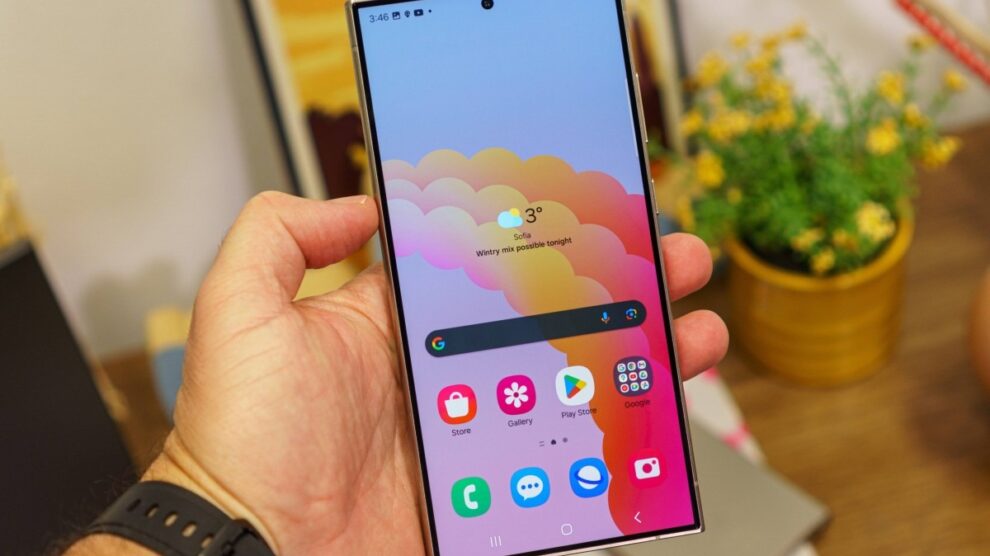Samsung Galaxy S26 series to mark a return to Exynos introduces a pivotal moment for Samsung’s flagship smartphone lineup. After years of reliance on Qualcomm’s Snapdragon processors in many markets, Samsung is reportedly making a bold shift by reintroducing its Exynos chips as a primary feature in its upcoming Galaxy S26 series. This decision has sparked widespread discussions among industry analysts and consumers alike, as it signifies not only a technological evolution but also a strategic move that could reshape Samsung’s standing in the highly competitive smartphone industry.

The Exynos processor, Samsung’s in-house chipset, has experienced a tumultuous history. While it has been praised for its innovation and power efficiency in some models, it has also faced criticism for lagging behind Snapdragon counterparts in areas such as performance and thermal management. In the past, Samsung’s dual-chip strategy meant that regions like the United States and China received Snapdragon-powered Galaxy devices, while Europe and other regions were equipped with Exynos variants. This approach often led to dissatisfaction among users who felt that they were getting an inferior product depending on their location. The return of Exynos in the Galaxy S26 series suggests that Samsung is determined to overcome these past criticisms and establish a unified standard across all markets.
At the core of this move lies the Exynos 2400, Samsung’s latest chipset, which is expected to power the Galaxy S26 series. Built on a cutting-edge 4nm manufacturing process, the Exynos 2400 is rumored to feature significant advancements in CPU and GPU performance, energy efficiency, and artificial intelligence capabilities. Samsung’s decision to highlight Exynos as a key component of its flagship devices indicates a renewed confidence in its ability to compete directly with industry leaders like Qualcomm and Apple. This shift is likely driven by a combination of factors, including the increasing cost of sourcing third-party chipsets and Samsung’s desire to strengthen its position as a vertically integrated technology company.
For you, as a consumer, the implications of this change are substantial. If Samsung’s efforts to improve the Exynos line prove successful, you could benefit from enhanced performance, better battery life, and seamless integration with the company’s ecosystem of devices. However, the real test lies in how the Exynos 2400 performs in real-world scenarios compared to Snapdragon processors. Early benchmarks and reviews will be crucial in determining whether Samsung can deliver on its promises and silence skeptics who remain wary of the Exynos brand.
The Galaxy S26 series’ return to Exynos also raises broader questions about the smartphone industry’s reliance on third-party chipmakers. For years, Qualcomm has dominated the Android market with its Snapdragon processors, while Apple’s in-house A-series chips have set a gold standard for performance and efficiency. By doubling down on Exynos, Samsung is signaling its intent to reduce its dependency on external suppliers and establish itself as a formidable player in the semiconductor space. This move could inspire other manufacturers to explore similar strategies, potentially leading to a more diverse and competitive market.
To better understand the technical and strategic aspects of this transition, the following table provides a comparative overview of Samsung’s Exynos and Snapdragon processors:
| Aspect | Exynos 2400 (Expected) | Snapdragon 8 Gen 3 |
|---|---|---|
| Manufacturing Process | 4nm | 4nm |
| CPU Architecture | Custom ARM cores with enhanced performance | ARM Cortex cores with focus on efficiency |
| GPU | AMD RDNA-based GPU | Adreno GPU |
| AI Capabilities | Advanced neural processing for camera and apps | Leading AI features tailored for mobile usage |
| Thermal Management | Improved heat dissipation | Proven efficiency in various conditions |
| Market Presence | Focused on Samsung devices | Widely adopted across Android brands |
This table highlights the anticipated features of the Exynos 2400 in comparison to Qualcomm’s latest Snapdragon offering. While both processors are expected to deliver impressive performance, the real differentiation may come down to how well Samsung can optimize the Exynos 2400 for its devices.
As the launch of the Galaxy S26 series draws closer, Samsung’s decision to return to Exynos has significant implications for the company’s future. For years, the criticism surrounding Exynos processors has tarnished Samsung’s reputation among certain consumer segments. By investing heavily in research and development and collaborating with industry leaders like AMD, Samsung is demonstrating its commitment to addressing these issues and delivering a product that meets the high expectations of its customers.
For you, as a potential buyer, the Galaxy S26 series represents a critical juncture. If the Exynos 2400 lives up to its potential, it could redefine what you expect from a flagship smartphone in terms of performance, efficiency, and innovation. However, skepticism remains, and it is essential to keep an eye on independent reviews and real-world performance tests before making a purchasing decision.
The Samsung Galaxy S26 series to mark a return to Exynos signifies a bold and ambitious step for Samsung. It reflects the company’s determination to reclaim its position as a leader in smartphone technology and semiconductor innovation. As a consumer, this development offers the promise of cutting-edge features and improved integration across Samsung’s ecosystem. However, the ultimate success of this transition will depend on Samsung’s ability to deliver a processor that exceeds expectations and addresses past shortcomings. Whether you are a loyal Samsung user or considering switching to the Galaxy S26 series, this development is one to watch closely in the coming months.










Add Comment